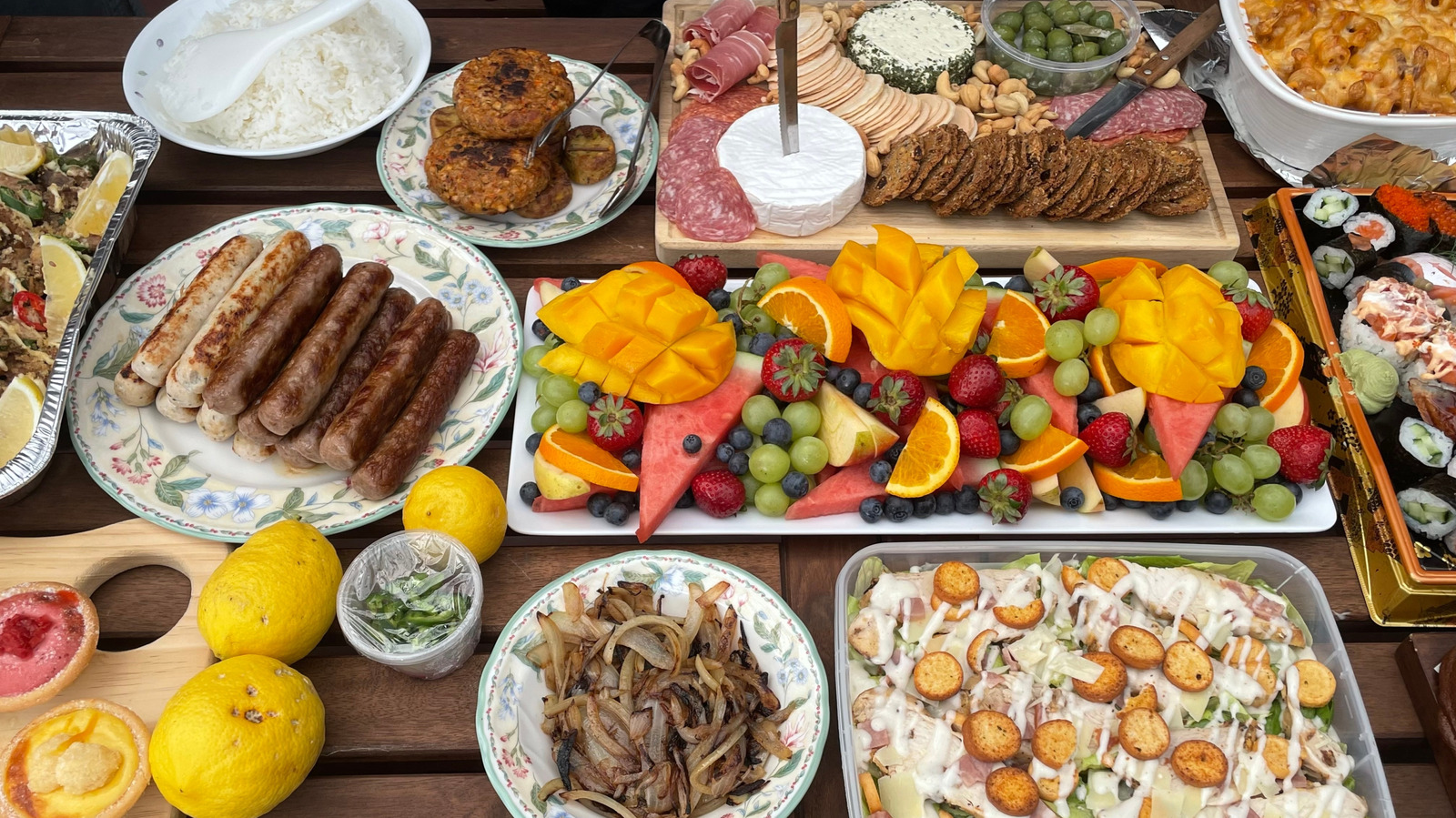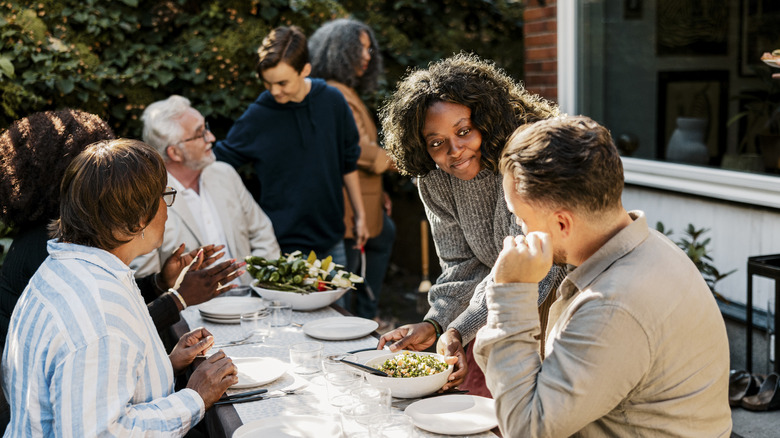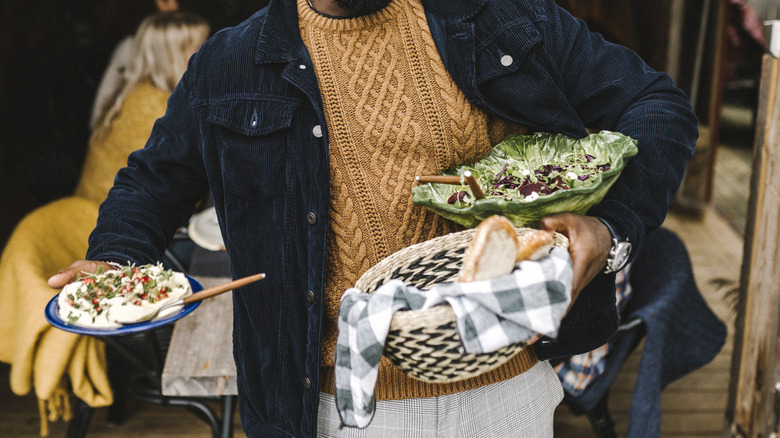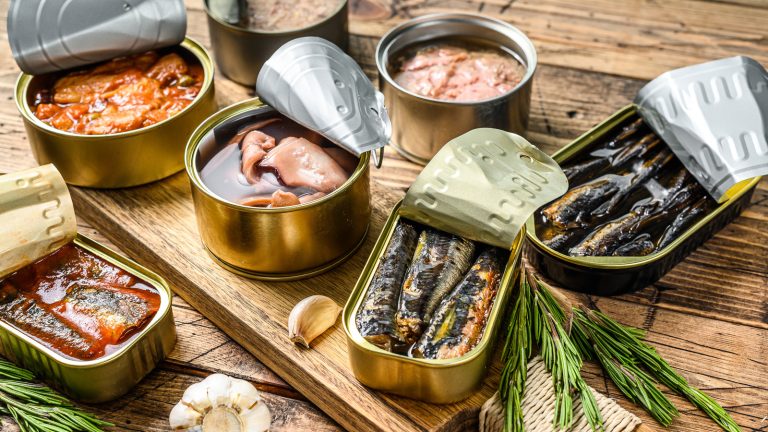We’ve all been there: You’re round at a friend’s place, and you’re having a great time — but then your host presents you with a plate (or even a whole spread) of food that they’ve spent all afternoon hard at work on, and … you just can’t eat it. Maybe you’ve got an allergy, maybe you ate earlier and are simply too full — maybe there’s a religious reason why you can’t consume it. If you’ve ever wondered how to turn that food down without hurting anyone’s feelings, we’ve got you covered. To find out the right way to decline this offer, we spoke to Nikesha Tannehill Tyson, an etiquette expert from The Swann School of Protocol in Shreveport and author of the book “Going Public: Culture, Custom, and Class for Social Success.”
The secret, according to Tyson, is using the right tone of voice and adding a friendly comment or explanation. “Be gentle with your ‘no thank you’ and offer a compliment if possible,” Tyson told us. “If you have already eaten, have dietary restrictions, or food allergies, this is a great time to say so. As an example, ‘It smells (or looks delicious), thank you for offering, I am not hungry.’ Or, ‘I am following (particular dietary restriction), thank you for offering.'”
Tyson adds that honesty is the best policy when providing these comments. This goes for everything from a one-on-one visit to a person’s home, to communal events like a Southern-style potluck.
Is it ever okay to go to a dinner party and not eat?
If you’re headed to a dinner party or other event that is focused on food, and (for whatever reason) aren’t intending to eat, should you tell your host? Should you even go at all? “It is generally considered impolite to attend a food-centered event at someone’s home and not eat anything at all, unless you have a valid and respectfully communicated reason,” Nikesha Tannehill Tyson explained. “Showing up and refusing food without context can make the host feel uncomfortable or insulted.”
Sometimes, however, you may have a genuinely good reason for not eating, such as food restrictions or allergies. Or, perhaps you’re one of the billions of people around the world who doesn’t eat pork for religious reasons, and you’re invited to a pork-heavy cookout. In this case, Tyson told us, the best practice is to inform your host about your food limitations (and your plans to not eat) ahead of time. “Most gracious hosts will appreciate the heads-up,” she said.
If your host is a dinner party pro, they’ll probably have accounted for these contingencies already, as neglecting to do so is one of the biggest mistakes you could make when planning a dinner party. As Tyson said, “Most hosts will ask about dietary restrictions or preferences when you are invited[,] or there may be a request for sharing food allergies or restrictions on the invitation along with the RSVP.” If you don’t have a valid reason to avoid eating, though, you might be better off not going in the first place.
What are the rules when it comes to bringing your own food with you?
Now, you might be intending to eat but can’t guarantee that you’ll be able to have what your host has provided for you (whether that’s because of a dietary requirement or otherwise). In that case, it may occur to you to just bring your own food — but is this ever okay? “While a host will make every effort to satisfy guests’ needs, it isn’t always feasible. It is acceptable to offer to bring a dish to share if you are a guest with a tight dietary requirement,” Nikesha Tannehill Tyson said. “This guarantees that you will have a dish to enjoy and keeps it thoughtful.”
If you’re sure that you’ll need your own meal all to yourself, Tyson explained that it’s acceptable to ask outright rather than offering to bring food to share. This way, you give your host the option to accept or to offer to make a suitable dish for you themselves once they know your needs and restrictions.
The key here is remaining respectful, considerate, and conscious of how your host might interpret your request. Tyson offered a final suggestion to that point. She said, “Asking if providing the dish would make things simpler for them is both acceptable and thoughtful.” So there you have it: Be polite, truthful, and considerate, and you’ll be spared a sticky situation next time you need to say no to food.







